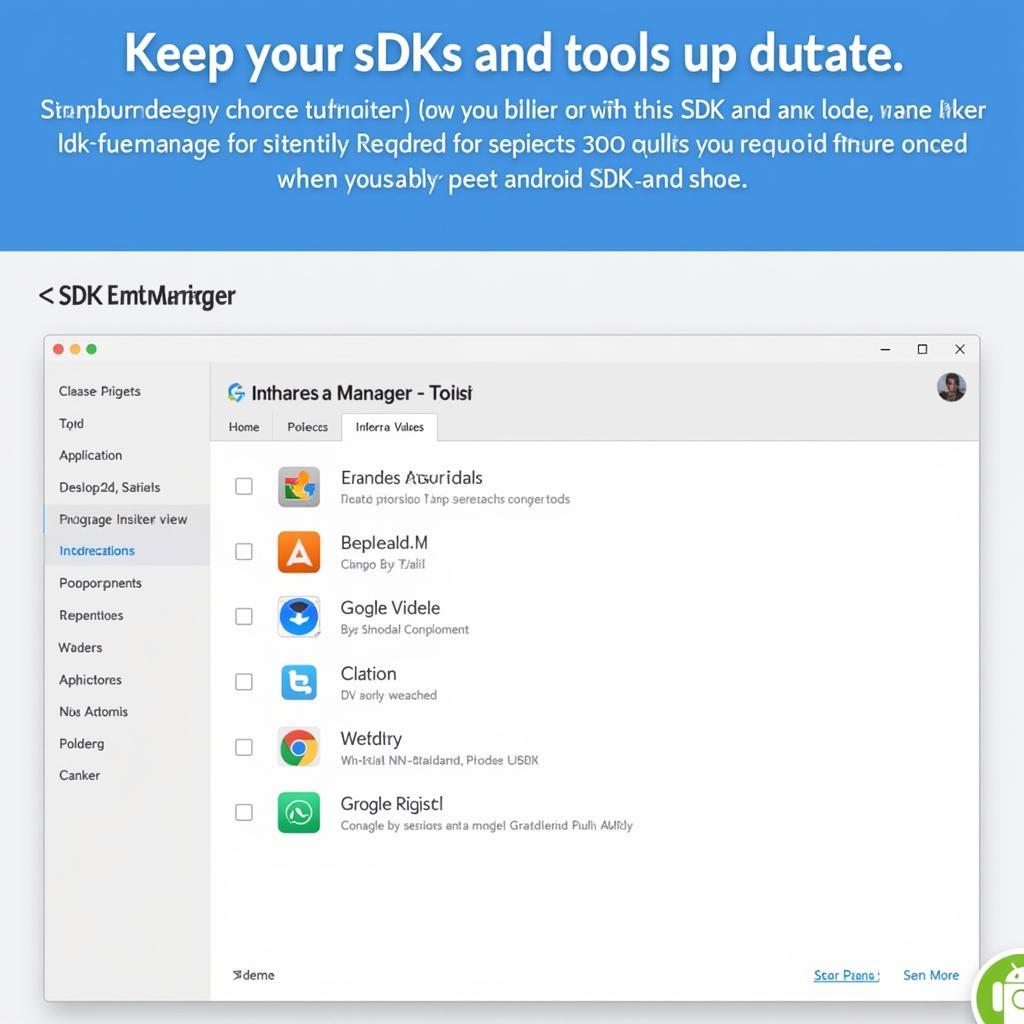Building an Android application package (APK) using Eclipse might seem daunting, especially for beginners. This guide will provide a comprehensive walkthrough of the process, equipping you with the necessary knowledge to Build Apk Use Eclipse effectively. We’ll cover key aspects, from setting up your environment to tackling common challenges.
Setting Up Your Eclipse Environment for APK Building
Before diving into the build process, ensure your Eclipse environment is properly configured. This involves installing the Android Development Tools (ADT) plugin and the Android SDK. The ADT plugin bridges Eclipse with the Android SDK, providing essential tools for development. The Android SDK includes platform tools, build tools, and platform components necessary for creating APKs. Once you have these installed, configure them within Eclipse to point to the correct directories.
Step-by-Step Guide to Building an APK in Eclipse
Now, let’s delve into the actual process of building an APK in Eclipse.
-
Create or Open Your Android Project: Start by creating a new Android project or opening an existing one. This sets the foundation for your APK.
-
Clean Your Project: Cleaning your project ensures a fresh build, removing any previously compiled files. This helps avoid potential conflicts. chay file apk tren eclipse
-
Build the Project: Right-click on your project and select “Build Project.” This compiles your code and generates the necessary files for the APK.
-
Export the APK: Once the build process is complete, right-click on your project and select “Android Tools” then “Export Signed Application Package.” This will guide you through the process of signing your APK, a crucial step for distributing your app. buil app apk tu android sdk
Common Challenges and Troubleshooting
While building an APK in Eclipse is generally straightforward, you might encounter some challenges along the way. Here are a few common ones and how to address them:
- Errors in the Console: Pay close attention to the console output during the build process. Error messages will provide clues about the cause of the problem. cach build file apk anroid
- Missing Libraries: Ensure all required libraries are included in your project’s build path.
- Incorrect SDK Version: Verify that your project’s target SDK version is compatible with the installed SDKs.
Why is Signing an APK Important?
Signing your APK is essential for security and distribution. It verifies the authenticity of your app and prevents tampering. Without a signed APK, you cannot distribute your app on platforms like the Google Play Store.
What are the different build types in Android?
Android offers various build types, such as debug and release, allowing developers to configure different settings for testing and distribution.
“A well-signed APK is your ticket to the app store,” says John Smith, a senior Android developer at AppDev Solutions. “It’s a fundamental step in the development lifecycle.”
 Managing the Android SDK
Managing the Android SDK
Conclusion
Building an APK using Eclipse is a fundamental skill for Android developers. By following the steps outlined in this guide and addressing potential challenges, you can successfully build apk use eclipse and prepare your app for distribution. Remember to always sign your APK for security and proper distribution. apache apk
FAQ
- What is an APK?
- Why do I need to sign my APK?
- What is the role of the Android SDK?
- How do I troubleshoot build errors in Eclipse?
- What are the different build types in Android?
- Where can I download the Android SDK?
- What is the ADT plugin?
For further assistance, contact us at Phone Number: 0977693168, Email: [email protected] Or visit us at: 219 Đồng Đăng, Việt Hưng, Hạ Long, Quảng Ninh 200000, Việt Nam. We have a 24/7 customer support team.